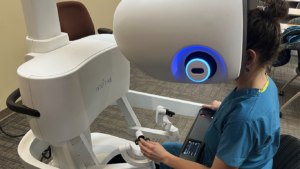Transitioning from hospital to home after surgery can be both exciting and overwhelming. While getting back to the comfort of your home is a relief, it’s essential to be prepared for a recovery that ensures your health and safety.
Prepare Your Home Ahead of Time
If you know about your surgery in advance, take some time to prepare your home for recovery. Concentrate on creating a safe and comfortable environment. This may include:
- Clearing pathways to prevent trips or falls.
- Setting up a recovery area with all essentials—comfortable seating or a bed, blankets, and easy access to items you may need, like medications, a phone, and remote controls.
- Ensuring your home is stocked with essential items such as groceries, toiletries, and any prescribed medications.
- Arranging for assistive devices like walkers, shower stools, or grab bars if needed.
Understand Your Discharge Instructions
Before leaving the hospital, it’s vital to review your discharge instructions with your healthcare team. Make sure you understand the following:
- Medication schedule: Know which medications to take, when to take them, and any potential side effects.
- Follow-up appointments: Schedule these ahead of time and ensure you have transportation arranged if necessary.
- Wound care and hygiene: Learn how to care for your surgical site to avoid infection. This may include cleaning instructions, bandage changes, and signs of infection to watch for.
- Physical restrictions: Your doctor may advise against lifting, bending, or certain movements. Following these restrictions is crucial to avoid re-injury.
Enlist Support from Family or Friends
Having someone to help you for the first few days after surgery can make a significant difference. This person can assist with:
- Household tasks like cooking, cleaning, and laundry.
- Transportation to appointments and picking up any prescriptions or groceries.
- Providing emotional support, as recovery can sometimes feel isolating or overwhelming. If family or friends are unavailable, consider hiring a professional caregiver or using local services that offer in-home support.
Consider Hiring a Live-in Carer
For those needing more consistent support, hiring a live-in carer can provide a valuable solution. Live-in carers offer 24/7 home care assistance with daily activities and medical needs, which can be particularly beneficial in the initial stages of recovery. Their support may include:
- Managing medications and monitoring for side effects.
- Assisting with mobility and physical therapy exercises, helping you move around safely and avoid falls.
- Supporting personal hygiene by helping with bathing, dressing, and other activities.
- Providing companionship and emotional support, which can improve overall well-being during recovery.
Many live-in carers also have specialized training to handle medical needs such as wound care or pain management, allowing you to recover comfortably in your own home with peace of mind.
Stick to a Recovery Routine
Creating a structured routine can help you stay on track with your recovery goals. Here’s what a daily routine might include:
- Medication management: Use reminders to take medications on time. A pill organizer can be helpful if you’re managing multiple prescriptions.
- Physical therapy exercises: If your doctor has prescribed exercises, commit to doing them as instructed to regain strength and flexibility.
- Hydration and balanced meals: Staying hydrated and eating well will support healing and help prevent complications.
- Sleep and rest: Prioritize quality rest and avoid overexertion. Naps can be helpful, but try to maintain a regular sleep schedule.
Monitor for Signs of Complications
During your recovery, it’s essential to monitor for any signs that may require medical attention, such as:
- Unusual pain or swelling at the surgical site.
- Redness, warmth, or discharge from the incision, which may indicate infection.
- Fever, chills, or other signs of infection.
- Difficulty breathing or chest pain, which could signal a more serious condition like a blood clot.
If you experience any of these symptoms, don’t hesitate to reach out to your healthcare provider for guidance.
Stay Connected with Your Healthcare Team
Make sure you have contact information for your healthcare team and understand when to reach out with questions or concerns. Regular communication can help catch any issues early and ensure that your recovery is on track.




